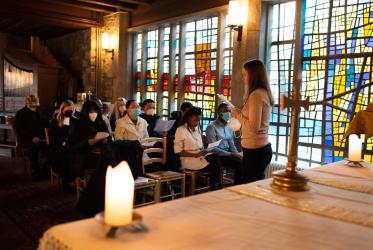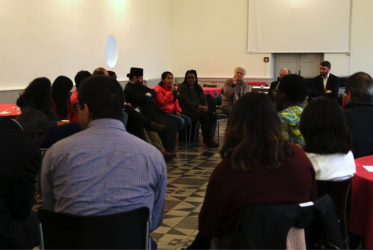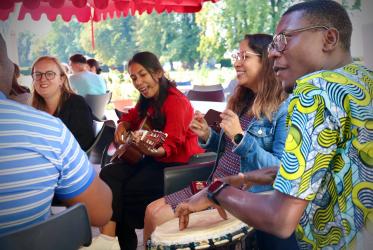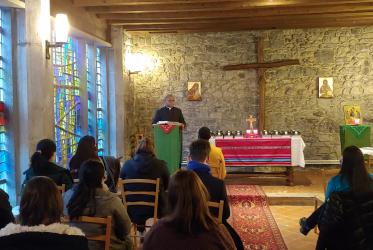Displaying 1 - 18 of 18
Chateau de Bossey thriving as lives are transformed
08 September 2023
Christ’s Love (Re)moves Borders – GETI 2022 in images
13 September 2022
New academic year underway at Ecumenical Institute in Bossey
13 September 2021
Bossey students look to Christmas, amid new, ecumenical family
17 December 2020















